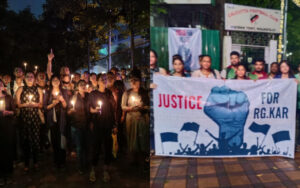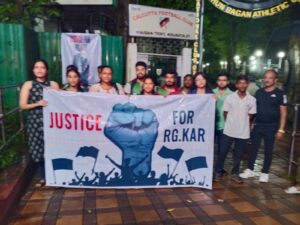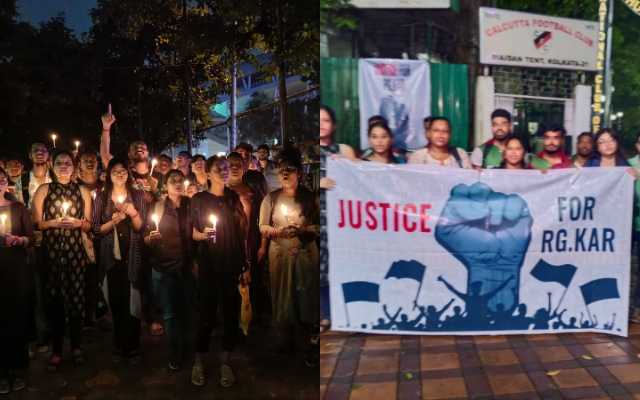
Sports and politics mix. They always have, and always will. Anyone who says anything to the contrary is in fact making a political statement, and trying to deny the truth. Each time the national anthem is played on the sports field, it is a celebration of nationalism and a political act. Players with hands on their hearts singing the national anthem while standing on the medal podium seeing their national flag go up is the most celebrated sight in sport, and nothing could be a more potent symbol of aggressive nationalism.
Tommy Smith and John Carlos standing on the podium in Mexico 1968, performing the Black Power Salute, is one of the most powerful images ever. It was also the strongest political indictment of racism using the Olympic platform. While Smith and Carlos were criticised and banned at the time, they have now been accorded the status of legends in the echelons of American sport.
Inviting Mohammed Ali to light the Olympic flame at the Atlanta Games in 1996 is yet another example. The political significance of the act was not lost on anyone. A frail Ali with trembling hands lighting the flame sent shivers down the spine of every spectator who watched the act. It was deemed an apology for years of torture and was a sort of recognition that Ali had always craved for. The very same man who had thrown away his Olympic medal in protest against racial discrimination had been asked to officially start the world’s greatest sports spectacle. Things had turned full circle for him and also for the fight against racism.
For the Latest Sports News: Click Here

And that’s why I say this. One of the biggest sporting events that we have in Bengal and India is the Kolkata Derby. Mohun Bagan v East Bengal is part of our DNA. The kind of fan passion it evokes is unrivalled. That’s what gives us a chance. Use the Derby to make a statement. The cancellation is one such. A statement about what we stand for. That we seek justice. Fight for it. Always will. The city needs to heal and the cancellation is a step in the right direction. Whichever team would have won or scored a goal, a section of fans would have celebrated. This isn’t a time for celebration. It is a time to mourn. Get our city back. In fact, during the next round of games, if the players wear black armbands and if every supporter, whether Mohun Bagan or East Bengal, wears one in solidarity, it would be the best form of protest possible. Peaceful, yet symbolic. Powerful, yet understated.
Before every summer Olympics for the last few decades, the Games have provided a forum for issues of international concern. While Seoul highlighted the Korea crisis, Barcelona 1992 brought to light ethnic differences within Spanish society. Atlanta ’96 drew world attention to the race issue in the USA, and Sydney 2000 highlighted the Aboriginal crisis Down Under. When Cathy Freeman lit the flame at the Sydney Games in 2000, it was much more than a sporting ritual. It symbolised the recognition of the tensions at the heart of modern Australian society, augmented further even when she later wrapped herself in the aboriginal flag in full view of the world’s cameras.
Cricket too has had its share of political statements. England refusing to travel to Zimbabwe during the 2003 World Cup, protesting against the Robert Mugabe regime, resonated well with sports fans from across the globe. Andy Flower and Henry Olonga, who decided to give up thriving cricket careers to stand up against political atrocities back home, were celebrated worldwide. Flower and Olonga were both forced to seek asylum in Britain, which they were readily given. Both have since been appropriated into mainstream British society.

India too has had its share of political moments in sport. The standout would surely be the refusal to perform the Hitler salute in front of the German chancellor at the opening ceremony of the 1936 Games. Though the Berlin Games was ultimately to be remembered for the exploits of the American athlete Jesse Owens, whose triumph disproved Nazi theories of Aryan dominance, the Indian decision not to salute Hitler was a grand gesture of defiance, totally in sync with the tenets of the dominant stream of Indian nationalism at the time. The Indians were the only contingent, apart from the Americans, to not perform the raised-arm salute as a mark of respect for the German Chancellor.
In sum, sport has always allowed for peaceful protest. The cancellation of the Derby is evidence that the city continues to be enraged. It seeks justice and isn’t ready to embrace normalcy. It is time to accept that sport makes room for peaceful protest and draws international attention to things in a manner that few other spheres are able to do. As a result, it will forever be used to make larger political statements. To deny its potential to do so is an attempt to disavow it of one of its most fundamental characteristics.
Also Read: Kolkata and Delhi, Derby and Vinesh: Sport, politics and gender




